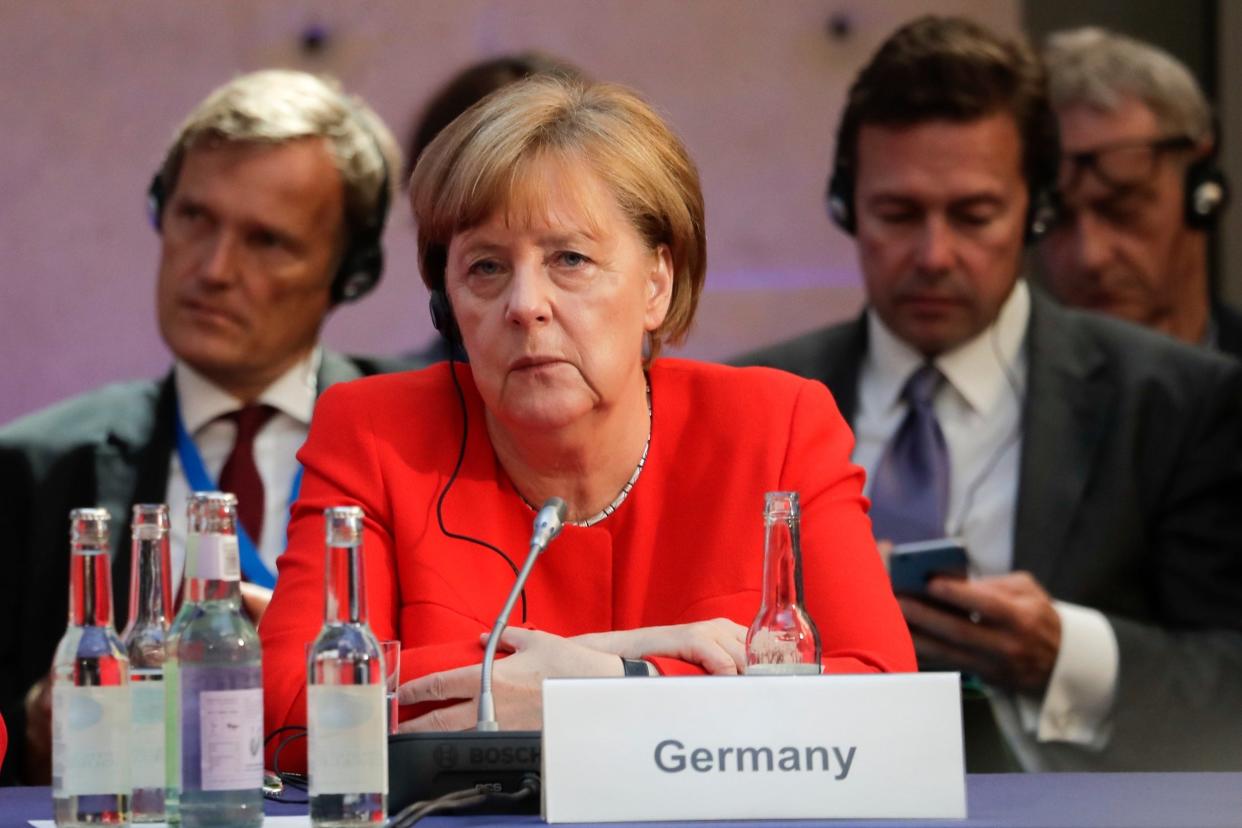Letter from Germany: 'Crisis' is the word on everyone's lips as Angela Merkel faces refugee decision

From the pleasant Bavarian countryside to the vibrant streets of Munich, the word on everyone’s lips is Regierungskrise (political crisis).
Chancellor Angela Merkel’s conservative coalition partner, the Christian Social Union (CSU), has ruled Bavaria since 1957. But this week the CSU has been at the heart of one of Europe’s most serious political deadlocks.
The stakes are clear: either Ms Merkel closes the German border to the inflow of refugees, possibly triggering a European crisis, or the CSU withdraws support for her government.
Bavaria was on the front line of the refugee crisis in 2015. After Ms Merkel announced Germany’s non-compliance with the Dublin Regulation on registration, tens of thousands of migrants entered in a single week, mostly on trains from Austria. The CSU had its worst ever result in federal elections last year and is keen to avoid a repetition in state elections this November.
I met Franz, 85, from the town of Landau-an-der-Isar. He has voted CSU all his life. But he tells me that the refugee crisis has shaken his faith in Ms Merkel and her coalition. He hopes that strong support for the Alternativ für Deutschland (AfD) will force the conservatives to the Right. He may be correct. The CSU has increasingly attempted to attract angry AfD voters with hardline social and immigration policies. Ms Merkel spent the weekend in intense negotiations with CSU leaders who demand a hardening of Germany’s refugee policy.

Not everyone is impressed by this political shift. Iris, from a leafy suburb of Munich, grimaces when she speaks to me about the CSU.
“It’s blind nativism to appeal to the countryside. I like Merkel, but I’m ashamed Bavaria is represented by these people.” To defend Ms Merkel’s moderate legacy, she plans to vote for the Greens in November.
Eléonore, an 18-year-old student of political science from Breitbunn-Am-Chiemsee, is one of the liberal voters the CSU has abandoned. Germany’s refugee policy is obviously imperfect, she says, but the CSU’s “master plan” is nothing of the sort. Closing the border would turn a Bavarian problem into a European problem.
Yesterday’s Süddeutsche Zeitung carried a blistering attack on the CSU plotters. Columnist Ferdos Forudastan condemns the “unprincipled” ideologues on the Right, who are taking advantage of the migrant question to bring down Ms Merkel.
An uneasy ceasefire has taken hold until the EU summit at the end of the month. Nevertheless, Ms Merkel’s obituary need not be written just yet. The CSU’s position is not as strong as they claim, and she has history on her side. The EU’s longest-serving leader has overcome crises before. From what I’ve heard, she can do it again.
Arjun Neil Alim is a freelance journalist and student of history and international relations at the London School of Economics

 Yahoo News
Yahoo News 
